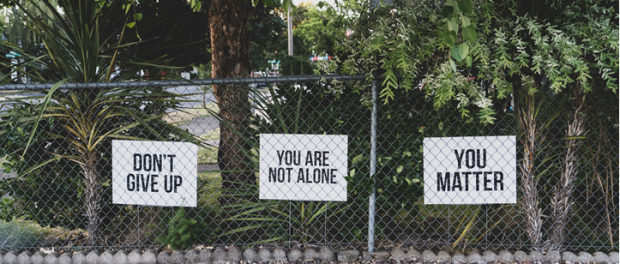Suicide: The Ripple Effect & How Mental Health First Aiders can help

In 2018 there were 6507 suicides registered in the UK.
6 5 0 7
Just let that sink in.
It’s easy to get numb to the statistics, to cast an eye over the data without thinking too deeply about the significance of it, but it’s important we take a second to remember this:
Each number represents a REAL person, someone’s grandparent, father, mother, son, daughter, brother, sister, friend, colleague.
An ACTUAL LIFE LOST and countless others affected forever
Suicide causes a ripple effect.
Just like throwing a pebble into a pond and watching the ripples move across the water, suicide destroys many lives, not just the one that it physically takes. While it devastates the persons close family and loved ones, it also deeply impacts friends, co-workers and often affects the wider community.
Between 2011 – 2015 construction had the highest suicide rates of any profession, with more than 1400 UK workers taking their own lives (Office of National Statistics)
More than 1400.
With a significant increase in the rate of deaths registered as suicide last year (11.8%) and men 3 times more likely to die by suicide than women, the Construction Industry has never been more vulnerable.
“We lose more than one construction worker every day to suicide… it’s a horrendous statistic.”
Bill Hill, Chief Executive – Lighthouse Club charity
Suicide rates in the Construction Industry have reached a tipping point: it’s time to accept that suicide prevention is everyone’s responsibility – not just the experts.
One way to protect the wellbeing of your workforce is to provide Mental Health First Aiders on site
Qualified Mental Health First Aiders are first responders to mental health emergencies in the workplace.
In 2018 The Construction Industry Training Board (CITB) announced its commitment to have 156 construction Mental Health First Aid (MHFA) instructors fully trained by September of this year, with a minimum of 2,500 on-site mental health first aiders to be trained by 2020.
The initiative is being rolled out nationwide and is already encouraging people to talk more freely about mental health, reducing stigma and creating a more positive culture.
It has the real potential to significantly reduce suicide rates in the industry.
What is the Mental Health First Aid course?
The MHFA course is an internationally recognised training course that runs over 2 days either on site or in a public location.
During the course, staff are given in depth training on a wide range of mental health issues and learn how to deal with a variety of situations on a mental health first aid basis.
They learn how to:
- Spot triggers and notice the first signs of stress, anxiety and mental health issues / distress in a co-worker
- Understand warning signs and risk factors and assess each individual situation
- Confidently approach a co-worker, step in, listen without judgement & ask the right questions
- Reassure and support co-workers and where to guide them to receive the appropriate support
- Provide help on a first aid basis to those at risk or in immediate danger
Appointing a Mental Health First Aider can save lives
As dramatic as it sounds, providing access to qualified MHFA’s on site can literally be the difference between losing a team member or not.
Research has shown that early intervention can enable recovery, so having a MHFA that can start the right conversations in a non-judgemental way is crucial to the mental well-being of your workforce.
Having someone trained to spot the signs and symptoms of mental health issues and being equipped with the knowledge and practical tools to approach and support an individual really can save lives.
How can you find out more about MHFA training?
Visit MHFA England
https://mhfaengland.org/individuals/adult/
Are you struggling or do you need to talk to someone?

Download the App here
By Donna Phillips (Corporate Cameo)
